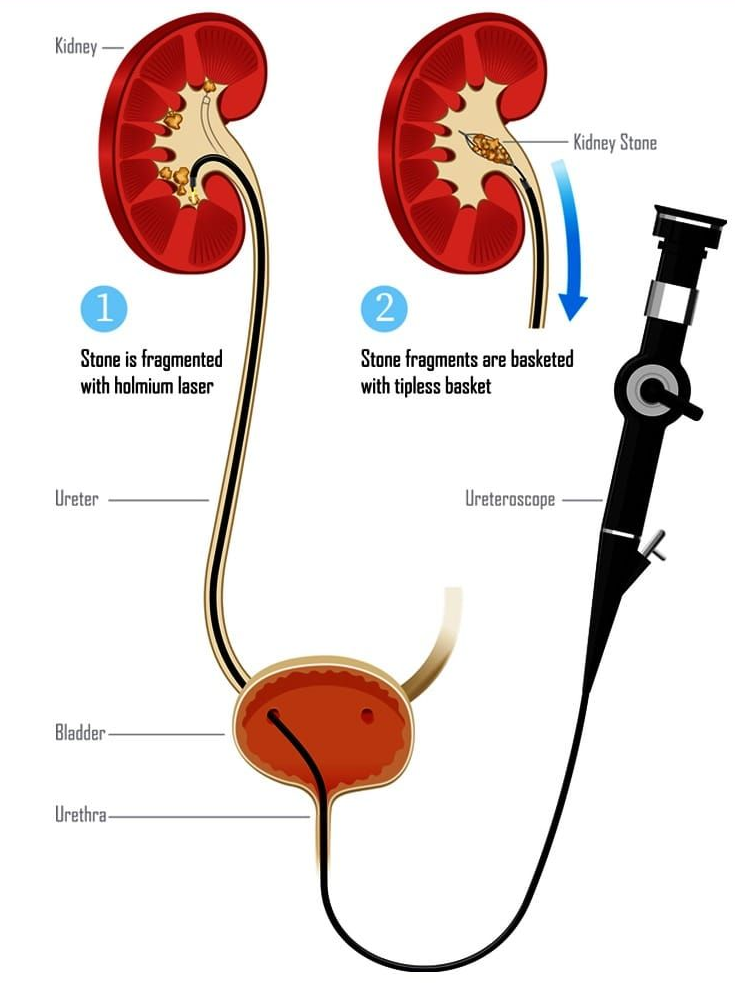Welcome to MITR Hospital
Top Surgeon for Retrograde Intrarenal RIRS Surgery at MITR Urology Associates in Navi Mumbai
Mitr Hospital Navi Mumbai is a leading provider of urology care, specializing in the diagnosis and treatment of various conditions affecting the urinary tract. These include urologic cancers, male sexual issues, urinary incontinence, pelvic pain, urinary stone disease, male infertility, and prostate problems. The Mitr Hospital specializes in advanced treatments and diagnostics for RIRS Surgery for Kidney Stone by Dr. Manish Dubey and Dr. Vijay Kumar Yadav with centers at Panvel, Kharghar, Ulwe, and Vashi.

What is RIRS or Retrograde Intrarenal Surgery ?
Retrograde intrarenal surgery (RIRS) is a procedure for doing surgery within the kidney using a viewing tube called a fibrotic endoscope.
In RIRS the scope is placed through the urethra (the urinary opening) into the bladder and then through the ureter into the urine-collecting part of the kidney. The scope thus is moved retrograde (up the urinary tract system) to within the kidney (intrarenal).
RIRS is done to remove a stone. The stone is seen through the scope and can then be manipulated or crushed by an ultrasound probe or evaporated by a laser probe or grabbed by small forceps, etc.
Benefits of RIRS Surgery
Certain advantages of RIRS surgery include:-
- It is Minimally Invasive (meaning no incisions or cuts are made)
- The procedure is simple
- Patient doesn’t need to stay in the hospital for more than one day
- The recovery period is short
- Fewer complications
- No bleeding
- Both sides can be treated together
- Can be performed for both children and adults alike
- Since the procedure is done after giving Aneasthesia, the surgery is absolutely painless
Who can get an advantage from RIRS?
- Prior attempts to eliminate renal stones have failed
- Stones are huge in size
- There is a tumor in the kidney
- The patient included is a child
- The patient has draining issues
- The patient is corpulent or obese
- The patient has complex anatomical kidneys
- Persistent is on anticoagulants
Our Procdures
Copyright © All Rights Reserved, By MITR Urology Associates